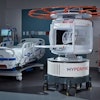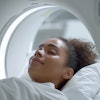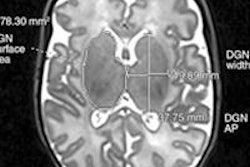Functional MR images (fMRI) have provided insight into a key brain structure that regulates emotions, which works differently in preschoolers with depression compared to their healthy peers, according to a study published in the July issue of the Journal of the American Academy of Child and Adolescent Psychiatry.
Researchers from Washington University School of Medicine say the findings could lead to ways to identify and treat depressed children earlier in the course of the illness, potentially preventing problems later in life.
The study demonstrates that there are differences in the brains of these children that may mark the beginning of a lifelong problem, said lead author Michael Gaffrey, PhD, from Washington University's Early Emotional Development Program, in a statement.
The study analyzed 54 children between the ages of 4 and 6. Before the study began, 23 of the kids had been diagnosed with depression. None of the children in the study were receiving antidepressant medication (JAACAP, Vol. 52:7, pp. 737-746).
While in the fMRI scanner, the children looked at pictures of people with various facial expressions, such as happy, sad, fearful, and neutral.
The amygdala region of the brain showed elevated activity when the depressed children saw pictures of people's faces, regardless of the type of expression. Among the preschoolers with depression, all facial expressions were associated with greater amygdala activity when compared with their healthy peers.
Depression may affect the amygdala by exaggerating what in other children is a normal amygdala response to both positive and negative facial expressions of emotion, Gaffrey said.


.fFmgij6Hin.png?auto=compress%2Cformat&fit=crop&h=100&q=70&w=100)





.fFmgij6Hin.png?auto=compress%2Cformat&fit=crop&h=167&q=70&w=250)











